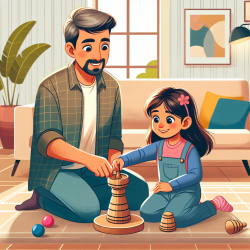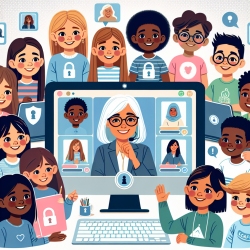As a Special Education Director and advocate for innovative therapy solutions, I've always been intrigued by research that explores the potential of parent involvement in enhancing therapeutic outcomes for children. A groundbreaking study by Costello and Potter (1983) sheds light on the significant impact that parent participation and home practice materials can have on articulation therapy. This research not only reaffirms the role of parents in the therapeutic process but also offers practical insights for speech therapists seeking to amplify their impact.
The study compared four groups of children with articulation disorders, focusing on the effects of therapy sessions accompanied by parents and the use of home practice materials. The findings were unequivocal: children whose parents were actively involved in therapy sessions and who engaged with prescribed home practice materials demonstrated considerable gains in articulation skills. This was in contrast to groups that received traditional therapy without parental involvement or home practice materials.
For speech therapists and educators, these findings underscore the importance of integrating parents into the therapy process. Here are several strategies to leverage these insights:
- Encourage Parental Involvement: Educate parents about the value of their presence in therapy sessions and how it contributes to their child's progress.
- Develop Home Practice Materials: Create engaging and accessible materials that children can use at home with their parents. This not only reinforces skills learned in therapy but also fosters a supportive learning environment outside of the clinical setting.
- Train Parents as Co-therapists: Although the study found that untrained parents could still significantly impact their child's therapy outcomes, providing parents with basic training and guidance can further enhance their effectiveness.
- Monitor and Support Home Practice: Establish a system for tracking home practice activities and offer support to parents as they navigate this process. This could include regular check-ins or a digital platform for sharing progress and feedback.
Implementing these strategies requires a collaborative effort between therapists, educators, and parents. By fostering an environment of cooperation and shared responsibility, we can create a more holistic and effective approach to articulation therapy.
Moreover, this research highlights the broader implications of parent involvement in educational and therapeutic settings. Engaging parents not only improves specific therapy outcomes but also enhances the child's overall learning experience and fosters a stronger connection between schools and families.
In conclusion, the study by Costello and Potter (1983) provides compelling evidence for the power of parent participation and home practice in articulation therapy. As practitioners, embracing these findings can lead to more impactful therapy sessions and ultimately, better outcomes for the children we serve. To delve deeper into the research and its methodologies,
please follow this link: The Effectiveness of Articulation Therapy Utilizing Parent Participation and Home Therapy Material.










